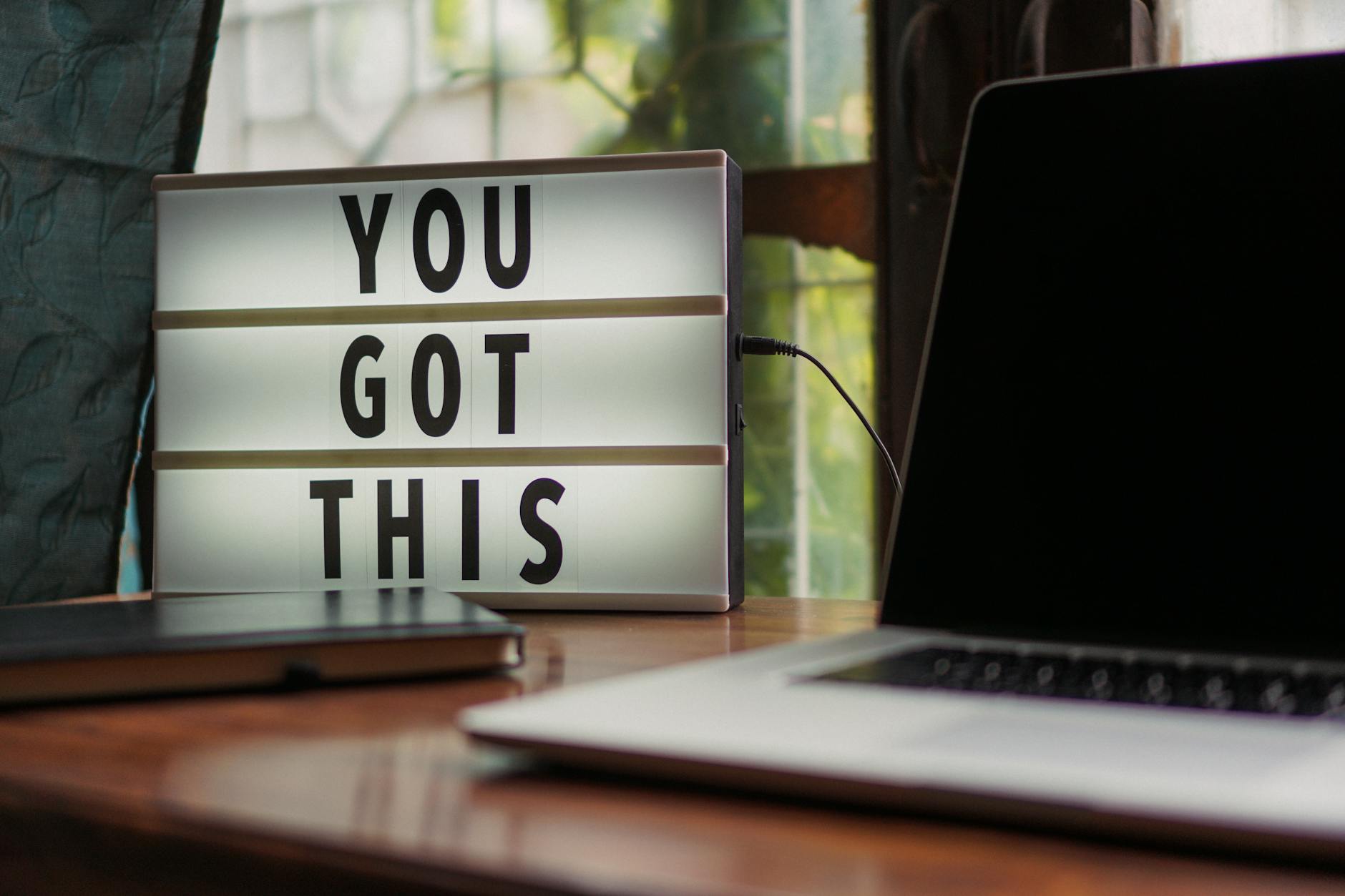Have you ever stopped yourself from speaking up because you worried about what others might think of you? Maybe it was during a meeting at work, a conversation with friends, or even while deciding what to post online. Moments like these add up and make us feel trapped by others’ opinions. But imagine how much lighter life could feel if we didn’t carry the weight of what others thought about us all the time. This guide offers practical tips and real-life exercises to help you stop caring about others’ opinions, build your self-worth, and focus on what truly matters to you.
1. Why We Care
Craving Acceptance
Humans are naturally wired to want approval from others. Our ancestors had to stick together to survive, so being accepted by others helped ensure safety. However, now we might not face the same survival issues, but our brains still seek social approval. Just understanding that it is normal can make it easier to start letting go of it when it becomes overwhelming.
Social Conditioning Starts Early
From a young age, we’re taught to care about what others think—from our families, teachers, and friends. These early lessons create “default thoughts,” which are automatic beliefs about ourselves and others. Recognizing when this social conditioning takes over can help us question it instead of just going along with it.

Spotting Emotional Triggers
Try keeping a journal to notice moments when you feel judged or insecure. Ask yourself, “Why does this make me feel unsure?” Over time, you’ll see patterns in these situations, and this makes it easier to catch yourself before you start overthinking. Here’s a simple guide on how to write a journal if you’re new to this.
2. The Psychology Behind Self-Worth
Finding Your Unique Strengths
Find your unique strengths to assess your self worth. List three things you’re good at, or three things people have complimented you on. Recognizing your unique qualities helps build internal confidence, which can make others’ opinions feel less important. Keep coming back to this list every time you feel weighed down by others’ opinions.
Avoiding The Comparison Trap
Comparing yourself to others is a trap that feeds self-doubt. Practicing mindfulness can help us keep an eye out for this trap and allow you to be your most authentic self. Try a quick mindfulness exercise: each time you find yourself comparing, say, “I am here, and they are there.” This simple phrase will remind you that your journey is different from theirs, and there’s no need for a comparison.

Gratitude For Yourself
Make gratitude a part of your daily routine. Practicing gratitude has a lot of benefits like improved mental health, enhanced self-esteem, improved focus and stronger relationships. At the end of each day, write down three things you appreciate about yourself. This can be as simple as, “I am a good friend” or “I handled a stressful day well.” Over time, this will build your self-worth and you’ll stop caring about what others think of you.
3. How Charisma Can Help
Authenticity As Charisma
People with charisma don’t try to impress others—they’re just genuine and interested in connecting. If you want to find out what being authentic really means, think of someone you admire for being real. Think of the reasons why you think they’re genuine, and why you think highly of them. You’ll realize that being yourself, instead of focusing on how to make others like you, can be your best form of charisma.

Speaking Up
The easiest way to tell if a person is confident is by paying attention to how they speak when they’re faced with opposition. Start practicing small acts of confidence by speaking a little louder and clearer when you introduce yourself. Even these small steps help build inner strength and reduce worry about how others perceive you. You do not have to start shouting or arguing with others, but be sure to make yourself heard when it matters.
Listening Is A Superpower
Most people listen to reply, not to understand. Being a good listener can be charisma superpower if you spend some time and effort in becoming a better listener. When you’re with someone, ask questions and really listen to them. People are naturally drawn to good listeners, and this makes you feel connected instead of worried about impressing them.
4. Embracing A Stoic Mindset
Stoic Independence
The Stoics believed that peace comes from within, not from others’ opinions. It teaches us to build self-control to be able to overcome negative emotions and lead a well-lived life. Start by focusing on your values and what guides you in your life. Moreover, when you know what’s important to you, others’ judgments lose their power. If you’re interested, here’s a list of 11 Stoic rules for a calm life.

Control What You Can
At its core, Stoicism asks you to focus only on what you can control. When you’re facing a difficult situation, list things you can and cannot control. For example, you can say to yourself – “I can control how prepared I am, but I can’t control how my boss responds.” This exercise helps you let go of others’ reactions and focus on what you can actually influence.
Daily Stoic Reflections
Stoicism is quite effective you practice it everyday and reflect on how you did each day. At the end of each day, think about one moment when you felt judged. Ask yourself, “Did I act based on others’ opinions or my own values?” This simple reflection helps you build confidence and as time passes, you’ll realize that what other people think about you are just opinions, not facts.
5. Reframing Others’ Opinions
Judgments Are Short-Lived
Many people’s judgments about others are often short-lived and not as significant as we might think. If you worry too much about what someone else thinks of you, try visualizing their opinion fading away like smoke. This imagery will help you remind yourself that their views are temporary and that you shouldn’t let them control your feelings or actions.

Reducing Perfectionism
Another effective way to reduce the weight of others’ opinions is by practicing vulnerability. This means allowing ourselves to accept and show our imperfections. For example, you could share an opinion on social media or stop worrying about making everything perfect in your work. By accepting that nobody is perfect, we can feel more confident in ourselves and stop caring about what others think of us.
The “Will This Matter?” Test
Additionally, you can use the “Will This Matter?” test. When you find yourself feeling anxious about someone’s judgment, ask yourself, “Will this matter a year from now?” This question helps put things in perspective. Most of the time, the answer will be no, which can lessen your worries and help you maintain focus on being the best version of yourself.
6. Building Internal Motivation Over External Validation
Setting Goals Based On Your Values
Having goals in life is one of the best defenses against others’ opinions, because it means that you’ll be too busy working on yourself to care about what others think. Set goals that are in line with your values and are based on what really matters to you. Maybe you want to learn how to dance because it brings you joy—not because it’ll impress others. Aligning with personal values makes others’ opinions seem less important. If you struggle with setting goals, check out this awesome article on how to set goals for success.

Celebrating Small Wins
Don’t forget to celebrate every time you achieve a goal, no matter how small. Celebrating small wins keeps the momentum going and makes you feel proud of yourself for making progress. Try to set small, achievable goals that feel satisfying to complete. This will help create a pattern of accomplishment, making you feel good about yourself without needing others’ praise.
“What I Want”
Motivation works best when the goals are highly personal and you connect with them on an emotional level. Write a list of “What I want for me” versus “What others want from me.” This will add a personal touch to your goal setting process. Moreover, seeing the difference will also help you focus on what’s truly important to you and it will be easier to stay motivated when you run into challenges.
7. Practical Exercises To Stop Caring
Mindfulness For Overthinking
Mindfulness is all about focusing on the present moment and being aware of your thoughts. It helps you not worry too much about what others might think or say about you. When you find yourself feeling anxious about other people’s opinions, try the 4-7-8 breathing technique. Here’s how it works:
- Inhale through your nose for a count of 4 seconds.
- Hold your breath for a count of 7 seconds.
- Exhale slowly through your mouth for a count of 8 seconds.
This simple “stop and breathe” method allows you to pause and clear your mind before getting caught up in overthinking.

Self-Compassion Practice
Another important part of staying confident is practicing self-compassion. This means treating yourself with the same kindness that you would show a friend. When you are kind to yourself, you won’t rely so much on others for validation, which can boost your self-worth. When you feel insecure, try saying something nice to yourself, like, “I’m doing my best.” This simple phrase builds resilience against others’ opinions. However, insecurity can make life challenging, so check out this article to learn how to overcome insecurity with easy to follow tips.
Gradual Exposure To Judgment
Sometimes, the best way to deal with the fear of being judged is to face it slowly. Start by sharing a light opinion in a safe setting where the stakes are low. For example, you could share your favorite movie or book with friends. As you get more comfortable, gradually try sharing bigger opinions or ideas in more challenging situations. This approach helps you get used to the idea of being judged without feeling overwhelmed or anxious. Over time, you’ll build confidence and feel less afraid of others’ opinions, until one day you can stop caring about what others think.
8. Social Anxiety At Work
Using Criticism For Growth
Criticism can be great for personal growth if handled correctly. Turning criticism into growth is an important skill to learn if you want to stop caring about what others think. When you receive feedback, try to see it as a tool for personal development rather than a personal attack. Instead of feeling hurt or defensive, ask yourself, “How can this help me improve?” For example, if a teacher says your essay needs more detail, think about how adding examples can make your writing stronger. This way, criticism becomes a chance to learn and do better next time.

Confidence Through Facts
To build your confidence, create a list of your skills and achievements. Write down things you’re good at, like playing sports, drawing, or helping friends. Also, include accomplishments, such as getting good grades or finishing a tough project. Whenever you feel unsure about yourself, look at this list. Knowing your strengths can help you worry less about what others think and remind you that you have many talents.
Visualizing Success
Another helpful technique is visualizing success. Think about a time when you did really well at something, like giving a presentation or scoring a goal in a game. Picture how you felt during that moment—excited and proud. Remembering these positive experiences can calm your nerves and build confidence for future challenges. The more you focus on your past successes, the more prepared you’ll feel to face new opportunities when you’re learning to stop caring about what others think of you.
9. Validation In Relationships
Seeking Support, Not Approval
When you share your feelings with others, try to do it honestly without expecting them to agree with you. For example, if you’re feeling stressed about school, talk about it with a friend or family member. Instead of hoping they will say, “You’re right; you should feel that way,” focus on expressing how you feel. This shift helps you rely less on their approval and more on your own feelings. It’s okay if others don’t understand; what matters is that you’re being true to yourself so that you can stop caring about what others think.

Setting Boundaries
Setting boundaries is important for healthy relationships. You can practice this by saying something like, “I appreciate your thoughts, but I’m happy with my choice.” This means you respect their opinion but also value your own decisions. For instance, if someone tries to pressure you into a certain activity that doesn’t feel right for you, standing firm in your choice shows self-respect. Moreover, respectful boundaries make relationships stronger because they allow everyone to feel heard and valued.
One Daily Self-Respect Practice
To build self-trust, make one decision each day that feels right for you. It could be as simple as choosing what to eat for lunch or deciding how to spend your free time. By making choices that align with your values and feelings, you create a habit of trusting yourself. This practice reduces the need for others’ validation and helps you feel more confident in your decisions.
10. Shift Your Focus
Self-Compassion
When you make mistakes, try to see them as learning opportunities instead of failures. For example, if you didn’t do well on a test, think about what you can learn from it, like studying differently next time. This mindset will help you grow without being too hard on yourself. Everyone makes mistakes, but being kind to yourself during tough times allows you to bounce back and improve.

Tracking Growth, Not Approval
To focus on your own progress, consider keeping a “growth journal.” In this journal, write down your weekly achievements in areas that matter to you, such as learning a new skill or developing a healthy habit. For instance, if you’re trying to get better at drawing, note how many drawings you completed each week. By tracking your growth instead of seeking approval from others, you keep your attention on what truly matters—your personal development.
Pursuing Meaningful Activities
Identify activities that feel purposeful to you. This could be anything from learning a new language to volunteering in your community. When you engage in activities that have meaning for you, it helps keep you grounded and focused on your own path. Finding purpose in what you do can bring joy and fulfillment, making it easier to stay motivated and positive about your journey to stop caring about what others think.
11. Developing Long-Term Habits
Positive Influences
Surrounding yourself with positive people is essential for your growth. Look for friends and mentors who focus on improvement rather than judgment. These supportive individuals encourage you to be your best self and help you feel good about your choices. For example, if you have a friend who celebrates your achievements and motivates you to try new things, you’re less likely to care about what others think. When you have a strong support system, it becomes easier to believe in yourself and pursue your goals.

Small Reflections Each Day
At the end of each day, take a moment to think about one time when you acted true to yourself. This could be as simple as standing up for what you believe in or making a choice that felt right for you. Writing down these small reflections can help you recognize your growth over time. As you practice this daily, you’ll start to care less about others’ opinions and feel more confident in who you are. Eventually, you’ll stop caring about what others think of you.
Gratitude For Your Journey
End your day by listing three things you’re grateful for about yourself. This could include qualities like kindness, creativity, or determination. By focusing on what makes you unique, you learn to appreciate your journey more and worry less about how others view you. Practicing gratitude helps build a positive mindset, making it easier to embrace your true self.
Final Thoughts
Remember, caring less about what others think doesn’t happen overnight. But each small step you take builds a stronger sense of self. The more you focus on your own values and goals, the lighter and more confident you’ll feel. Embrace the journey, trust your path, and let go of the weight of others’ opinions. The freedom to live authentically is one of the greatest gifts you can give yourself.
What actions did you take today to stop caring about what others think?
